Every Wednesday, I talk about comics with Brandon Montclare, writer of the hit Image series Rocket Girl and co-writer of Marvel’s Moon Girl and Devil Dinosaur series.
We gab about what we’re reading now, what books we consider classics (Brandon loves Dark Knight Strikes Again…), and the hottest gossip of the industry. Occasionally, the inimitable artist Amy Reeder (Rocket Girl, Batwoman) stops by. Check out our full show archive at podcornpodcast.com.
Recently, The Comics Beat covered rumors that in 2016, DC would begin shipping certain titles from their line on a bi-weekly basis, effectively cribbing a tactic Marvel has been using to varying effect for years: double shipping. While getting two issues of Snyder/Capullo Batman or Palmiotti/Conner Harley Quinn may sound great in the abstract, there are rising concerns that the change may have an effect on series quality, forcing creators to either work double time or DC to bring in rotating artist/writer pairings. Worse yet, if DC is doubling down on their near century-old breadwinners, will they be forced to cut down on innovative new titles like Omega Men or Prez, which despite poor sales service a completely different audience from their main line? Are we entering a new comics recession?
All these questions and more, answered this week on Podcorn Podcast.
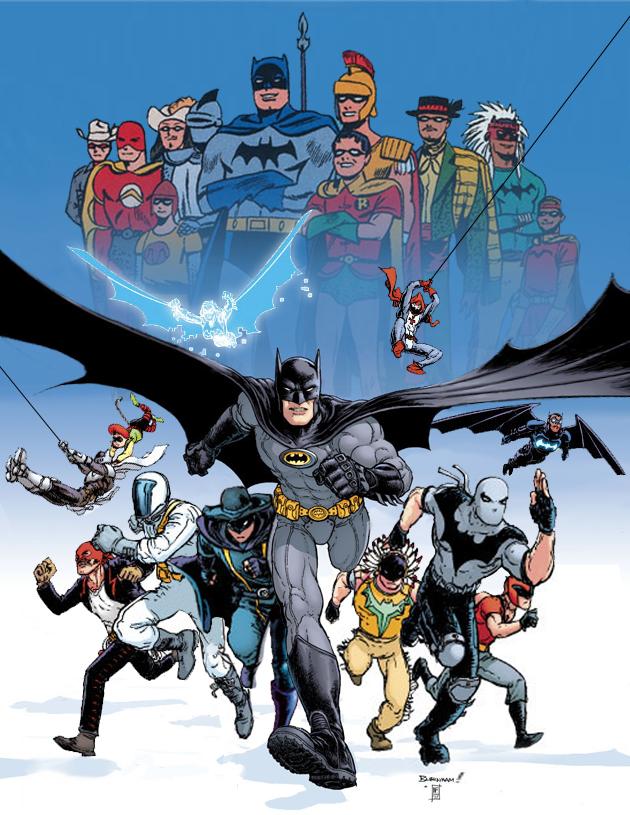
Intro/Outro music this week is Doublespeak by Thrice, off their album Beggars.
Visit rocketgirl.nyc for swag from Brandon and Amy!
Subscribe on iTunes so you never miss a…beat.


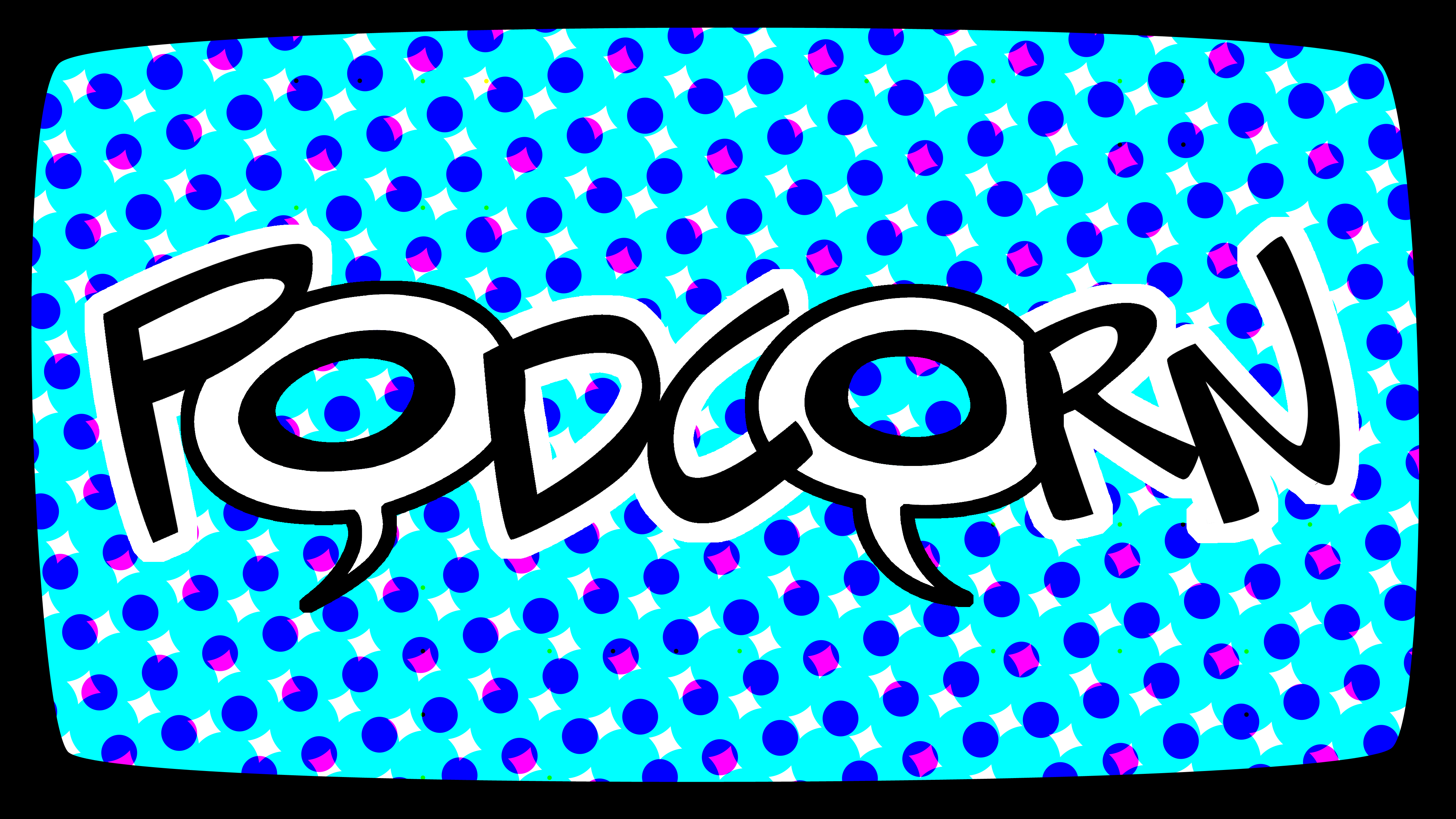
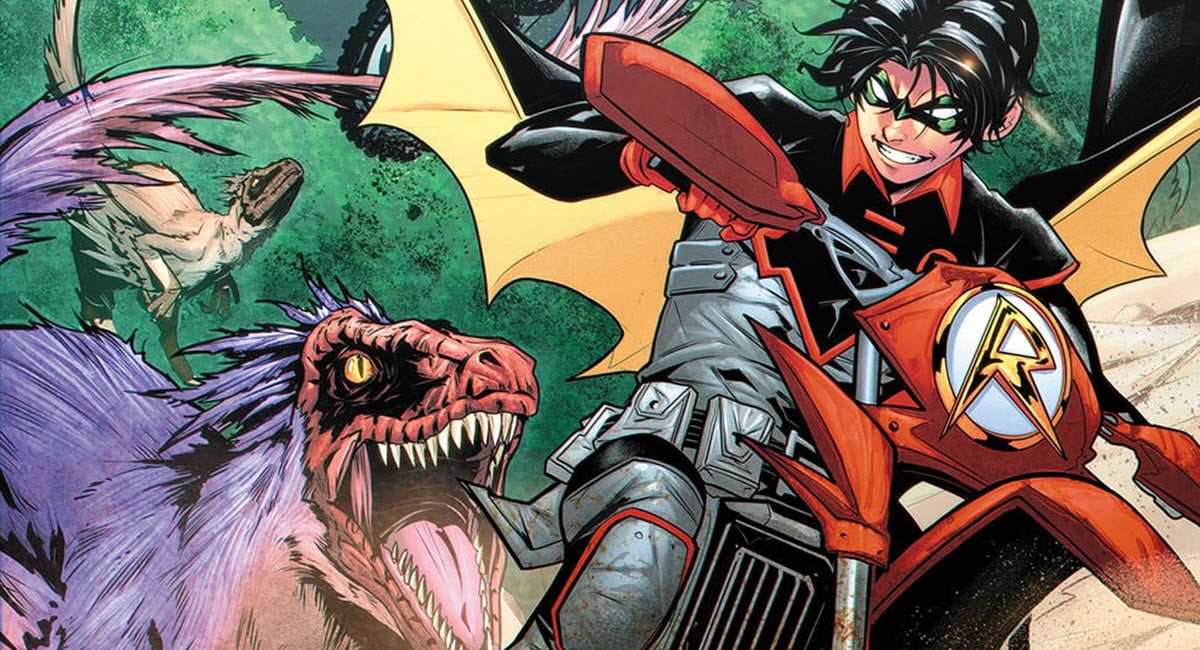
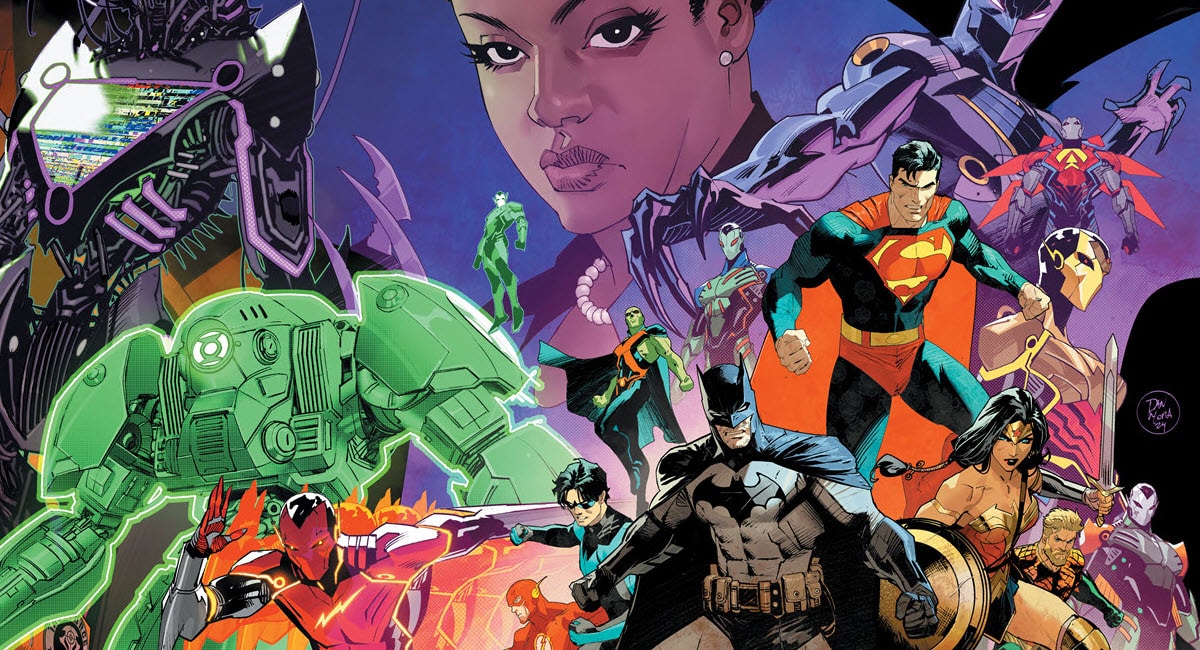
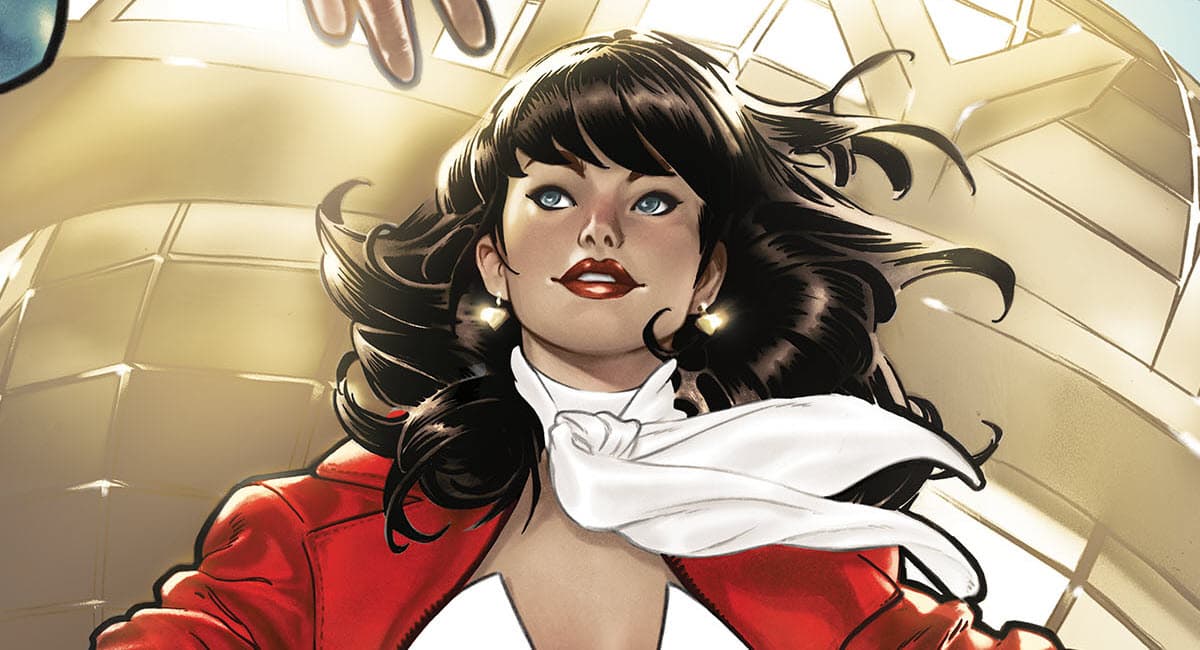

“This is not the way readers consume content anymore….. comics do it for no other apparent reason besides inertia.”
Seriously? Are you nuts?
For stories and genres that are well suited for serialization, periodical releases will always always always always sell more copies than an OGN (or whatever). Just look at the sales charts. It’s *obvious*.
If it wasn’t true, then publishers would have switched away from serialization a long long time ago. Have Snyder and Capulo do a BATMAN OGN, and I *guarantee you* it will not sell 100k copies in month #1 — but as a serialization it absolutely will AND THEN ALSO SELL AGAIN in trade later.
I also wish you two would stop pretending that Digital is at all a thing for the *overwhelming* majority of comics.
-B
That was Alex. He says crazy things. There are two of us, you know. And we don’t always agree.
So I don’t want to speak for him: but part of his point is that even serialized storytelling is more and more being dropped in bulk for a binging audience.
And you’re totally missing my larger point. Of course periodical Batman outsells OGN Batman in the world DC has built! Publishing, editorial, creative, production, marketing, DM sales, 3rd-party distribution, 3rd-party retailers ARE ALL GEARED TOWARD the periodical. You don’t need to be a genius to clock periodical dominance.
If you think the traditional means of production and distribution are down to the READER and not, well, tradition, I think you’re crazy.
And I mean two kinds of readers:
1) any potenial customer in the whole world–but especially audience exposed to our characters and our kind of stories in other media.
2) the core audience. They are conditioned to buy periodicals every Wednesday. Publishers are so close to readers. Retailers are even CLOSER. Of course we influence their buying habits; moreover, our effective marketing can influence their hearts and minds.
And I think we see eye-to-eye on things like variant covers and relaunches… why doesn’t M/DC clock the longterm diminishing returns? Can it be anything other than a bad habit, and a gun-shyness regarding course changes?
And you’ll have to take my word: no one loves the DM more than me. But I think we’re too afraid to conclude periodical format SHOULDN’T work. Or at least shouldn’t be dominant. Yes, “SHOULDN’T” prompts questioning what changes could be made to make things better…
But it should also prompt questions as to why it works! There’s a lot we could mine from our own successes for a better understanding of our business. But if you want instead to shrug your shoulders and say ‘Whelp! It works because it works!’ then you are in plentiful company–but unfortunately your net result is ‘standard’ attrition.
Well, we’re more than halfway through an odd-numbered decade; if the twenty-year boom-bust cycle is going to hold it had better hurry up.
The publishers have made a LOT of decisions over the past few years that have led me to think “This is unsustainable; it’ll lead to short-term gains but then things are going to collapse, just like the 1990’s.” It could still happen, of course, but I’m a lot less sure that it will than I was when, say, the New 52 launched.
I definitely think the Big Two are being too conservative, still catering too much to a niche audience, still putting out books that are far too samey (and even the ones that are different still follow the six-issue-arc format and all the plot beats that entails), focusing too much on the *illusion* of change (new #1’s every six months!) and not enough on *actual* change. But, on the other hand, it seems to be working out for them.
Meanwhile, Image is putting out a wide variety of great books; I don’t know if any have been breakout hits beyond the Wednesday crowd (except for Walking Dead and Saga), but I like to think what they’re doing is good for the future of the industry.
Here’s the thing: media is currently changing in a huge way. You cannot deny this. I used to follow weekly television viewer data, and just eight years ago heavily serialized shows like LOST pulled an average of 18 million viewers a week. Nowadays, Supergirl pulls around 7.5 million or so per week and is heralded as a breakout hit. On the largest traditional TV broadcast station. Television executives no longer talk about how well the show holds its audience, but rather how likely it might develop one.
Digital comics have an audience, particularly if you’re Ms. Marvel. Why is that? Why do so many people read this one particular comic digitally, and how can we develop more comics that this new audience might be interested in? I agree, digital comics are not a thing for most DM books right now. Personally, even I don’t read anything digitally. However, clearly, somebody is! Those somebodies may not be your typical Wednesday Warrior, and that is who comics publishers NEED to appeal to to bolster sales.
In all media, you have your entrenched audience. In theory, you have to worry less about appealing to them than you do about pissing them off. As long as you produce the type of story that they like, they’ll keep buying. This is why many mainstream bands and singers will produce stylistically similar records five times and still break sales records. Just look at Adele’s 25. However, you can’t only appeal to those people, because then you end up with a closed ecosystem like the one comics has! You’re draining your limited sphere of influence dry of cash while ignoring the fact that there are billions of fish with currency just as valid as your current catches’.
I have nothing against the Direct Market, or comic book shops. I LOVE comic book shops because they provide a gathering place for a community that rarely has one. However, I also feel like many of these shops have rarely been curated for people like me. I was SHOCKED to read your article, Brian, and find that there are still shops that only sell DC and Marvel. That’s honestly absurd to me. I haven’t been reading comics seriously for that long, but I can safely say that if it weren’t for Image books, I would have never picked up the lifestyle.
The reason why I’m so critical of the way things are done, and so geared towards looking for alternatives, is because I AM a member of that alternative audience. I can count the number of floppies I am actively excited to read month to month on my hands. Yet, that doesn’t mean I don’t like the other dozens of titles I read each month. When I pick them up in trade, I love them. They’re fluid and contain interesting character arcs and stories. I feel like I got a full experience by reading one arc at a time rather than one chapter at a time. I’m not alone. On my Twitter feed, more people are touting the merits of trade waiting. Yes, industry patterns dictate that you /should/ be able to double dip on your single and trade sales, but that’s an inherently parasitic business practice and may well not continue to succeed in the long term.
Why do we think that comics can function differently than all other media forever? Why do we think the same-old, redone, will attract new audiences forever? I’m not saying that history will be on anyone’s side. I’m simply interested in looking for alternatives to what presently exists, because I don’t think comics’ current economic structure is capturing all the potential customers it could be.
Brandon:
” the core audience. They are conditioned to buy periodicals every Wednesday. ”
No. They are conditioned (sort of) to buy COMICS every Wednesday.
The REASON that FAR FAR more buy periodicals than OGNs is the cost factor — $2.99 is an easier bite than $24.99
OGNs are *inherently* more expensive than periodicals, because they have nothing to amortize their costs against.
Things that are more expensive has smaller audiences. It’s a rule, like gravity.
Alexander:
“You cannot deny this. I used to follow weekly television viewer data, and just eight years ago heavily serialized shows like LOST pulled an average of 18 million viewers a week. Nowadays, Supergirl pulls around 7.5 million or so per week and is heralded as a breakout hit. ”
When LOST was on the air, how many scripted television shows were broadcast? How many today? Because, as a viewer, it sure feels like it has trebled..
However, any comparison of a media that costs money for individual purchases vs a media that is either “free” (or is bundled in such a way that any individual component at least *feels* free) is going to be a skewed and flawed one, because getting people to reach into their pocket and take out hard earned cash in exchange for art is always an uphill struggle!
“Digital comics have an audience, particularly if you’re Ms. Marvel.”
I’d personally like something a little more significant than unsourced 2-year old anecdotes, and I’d very much want a relationship for that to *recent* issues of that book (as opposed to when it was a “hot” media story back in 2014) to actually base any analysis on digital velocity around that title, but even if that IS the case for that individual title, that still doesn’t mean that digital is particularly significant for the OVERWHELMING majority of titles. I keep hearing “8-15% of print on average” from source after source after source.
What I DO know is that a reasonably significant number of 20-something new readers have walked in to MY store in 2015 and said things like “Yeah, I was checking out digital, but I wanted to come and get the ‘real’ version” (like, without any prompting!) — given that print in comics is growing, in direct opposition to trends in other media (both of my stores are up double digits), I feel safe in positing that comics are different and that when something is working, changing it just to change it is probably not the wisest of course.
My suggestion is this: stop making the mistake that armchair pundits have been making literally as long as I’ve been in comics (just passed 30 years now), and stop being disdainful of the product (“floppies”) or the customers (“Wednesday Warriors”) and thinking that just because things aren’t CRAZY AMAZEBALLS PERFECT (as *you* specifically envision it) that there’s something fundamentally broken or screwed up about the market. The market has become what it is over time as and in a direct response to the inputs that are applied to it. I certainly think comics are a lot more smart, sane, and straight-forward than the bizarre and corrupt ways that television shows are made, for example; hell, or even prose which seems custom-designed to make sure that the overwhelming number of authors can’t possible make more than minimum wage writing….
I’d encourage you maybe to even have some actual working today store-owners on the show, maybe get a better idea of how things DO work, because, honest to god, if I went through your 1:15 picking out every “well that’s not actually true” statement from the Podcast, I’d probably have a 2000 word essay….
-B
If you’re saying that dominance of the monthly format has more to do with someting discretely inherent in cover price than it has to do with 30+ years of publishers and distributors directing their business efforts in that specific direction, I can’t disagree more. I don’t even know what counter argument I can make… except that I’ve never met a professional in any aspect of the business that puts cover price–absenst buyer habits–in the ultimate position. To be fair: that’s monthly vs everything (OGN, TPB, Digital… library sales, whatever other little stuff).
And I hope I’m not reacting defensively to the “armchair pundit” comment, but rather you assertion that I disdain the DM. When I say “Wednesday Warriors” it’s with brotherly love as well as a bit of self-effacement. Same with Retailers. I’m a member of the tribe. Related: I don’t favor the term floppies… I usually default to calling them “monthlies”–but the context of this episode might have sometimes blocked my brain to that term. And in general: for any time I’m critical of this business, there’s at least five where I publicly cheerlead for it; moreover, I don’t think I’ve ever critiqued retailers or fans without explaining how publishers and creators are also a part of any given problem or lost opportunity.
As for the armchair stuff–we’ll, aren’t we all when it comes to systemic discussions? By your metrics, you’re not qualified to talk about publisher motivations for relaunches or incentive covers or anything else. In case some of the audience doesn’t know, I was a full-time retailer for 10 years. Granted, that ended 10 years ago. But as a 19-year-old I bought a dying store where the only alternative was Chapter 7. The store became one of Diamond’s top 100 accounts, and I left it in great condition. FWIW: from 1995-2005 Alternate Realities in Scarsdale NY sold a lot more comics than Comix Experience in San Francisco (having always read and noted your sales numbers posts).
You’ve got an open invitation to come on Podcorn. And to be more forward, I’ll suggest Alex reach out with an official invite. FWIW: Podcorn’s about discussion; it doesn’t attempt to tell people what to do.
Comments are closed.